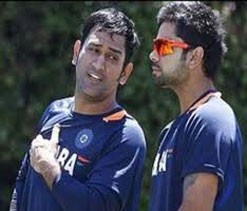
In 2003, once they were knocked out of a home World Cup after failing to read a piece of paper right, South Africa wagered on a new direction for its cricket team.
Graeme Smith had played all of eight Test matches, was 22 years old and although he averaged 55, his early reputation suggested his bark was more incisive than his bite. He was replacing Shaun Pollock who had done little wrong in his three years at the helm - winning 14 of 26 Tests and 59 of 92 ODIs. He had commanded the ship with grace in the aftermath of the match-fixing turbulence and was all of 30. Surely, a brain freeze on a Duckworth-Lewis equation wasn't enough reason to show him the door?
South Africa though weren't swayed by the numbers. When Pollock replaced Hansie Cronje, he was the right man for the wrong time. He was now the good man at the wrong time. From his innate decency, South Africa needed to graduate to a new language. Its cricketers needed a new man to re-ignite their joy of playing cricket. Smith was a young and passionate, talented and ambitious. He may or may not have been ready to be captain, but his country's cricket team needed his kind in-charge.
India faces a similar dilemma at this point and must make a similar choice. MS Dhoni has the numbers to stay on at the helm, but appears to have lost the sparkle that once defined his leadership. His decision-making has been consistently feeble and often frustrating over the last 18 months. His poise in explaining away defeats was once endearing but increasingly sounds like a shallow play on words. Nonchalance is admirable but when the setbacks pile up - eight straight overseas defeats and three consecutive World Twenty20s without a place in the semis - the skipper can't swat the gnawing questions aside.
Theorising about cricket captaincy is one of the great pastimes of the game. Must he lead by example at all times? Must he first command a place as a player? Must he be tactically sound or simply rely on instinct? Must he inspire and cajole? Or must he merely rely on a nudge and a quiet word? It is unlike any other job in the world, sporting or otherwise. You are captain one day and a mere player on another. One day you lead, on another you are led. One day you could move a man from third man to point, the next you could be following a similar diktat.
In Dhoni's case several boxes are being rapidly unchecked. Over the last year, he has first been picked as captain and is then somehow fit into the XI, especially in Test and Twenty20 cricket. Over the seven Tests he played in England and Australia, Dhoni scored a mere 322 runs at an average of 27. In the World Twenty20, he batted all of 51 balls in the entire competition, when several occasions demanded he promote himself in the batting order. In the longest and shortest formats of the game, Dhoni is captain first and wicketkeeper-batsman almost as an afterthought.
Power equations in Indian cricket have meant Dhoni's position has been unquestioned. Murmurs suggest a move to remove him as captain for the Asia Cup immediately after the tour of Australia was scuttled. His writ is the final word on marginal selections - RP Singh's sudden recall and Suresh Raina's re-instatement in the Test team are glaring examples. Five years in the job with all the machinations around Indian cricket have meant Dhoni is now conditioned to being captain first and all else later.
But the aura has faded as the results have nosedived.
If only for his own good, Dhoni the cricketer now needs to be disengaged from Dhoni the captain. He must be free to fight with claimants to the spot of India's No.1 wicket-keeper batsman. He must re-discover the joy of clattering the cricket ball into orbit, much in the manner when he first emerged. He must be allowed to relish the contest at par with the pretenders to his place in the squad. Tactics and player management should no longer be his lookout, his mind and body must be liberated to play cricket. There comes a time when cricketers should be cricketers alone- and with Dhoni that time is now.
It won't take a genius to find the successor. Much like Smith in 2003, Virat Kohli is a feisty young man with the world at his feet. He is the first name on all Indian teams these days - Test, ODI and Twenty20. His tears at the end of the World Twenty20 were a reminder that failure must rankle before it is explained. That India's cricket team impacts its followers and must do the same to its players. Does he have the nous and the tactical acumen? He may or may not, but unless he gets the opportunity one will never know. India starts an arduous journey in late 2013 in South Africa which will take them to New Zealand, England and Australia over the next year. The next Indian captain shouldn't start in the job with that itinerary staring at him.
The opportunity to blood Kohli is now - make him captain starting with the Test series against England. He is the new language India needs - one that will lift them from this listlessness.





Comments
Add new comment